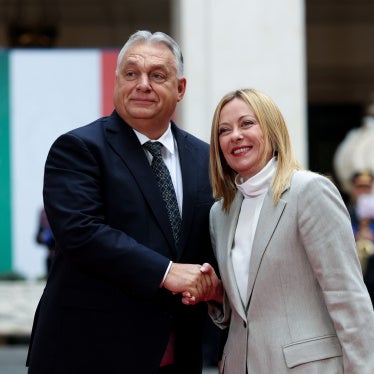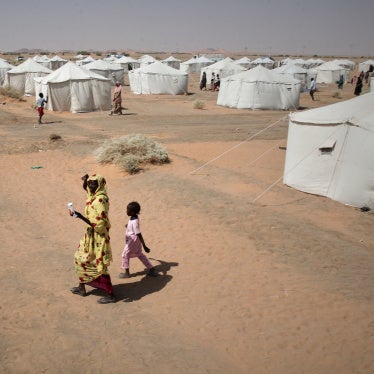(Brussels) - Today's verdict in the Rotterdam trial of an accused Congolese torturer will help make the Netherlands a 'no-go' zone for perpetrators of serious human rights crimes, Human Rights Watch said.
Sebastien Nzapali, an officer in the army of the former dictator Mobutu Sese Seko, was convicted of torture committed in the Democratic Republic of Congo in 1995 and 1996. This was the first trial under the Netherlands' 1988 Implementation Act to the United Nations Convention against Torture.
"With today's conviction, the Netherlands becomes a 'no-go' zone for people who commit serious human rights crimes," said Richard Dicker, director of the International Justice program at Human Rights Watch. "We hope Dutch authorities will energetically follow up this precedent."
Nzapali, or the "King of beasts," as he was known by his fellow officers, had requested asylum in the Netherlands in 1998. Dutch immigration authorities refused to grant him refugee status out of concern over his involvement in serious human rights abuses. Investigations against Nzapali began when some of his former victims alerted the Dutch police.
A multidisciplinary police task force took on the case, bringing together the Immigration Services, the National Intelligence Service, the Military Intelligence Service, and the Ministry of Foreign Affairs.
Dutch officials spent several months pursuing an investigation in the Democratic Republic of Congo in collaboration with Congolese authorities and Congolese non-governmental organizations. A Dutch magistrate and the lawyer for the accused went to Congo in February to facilitate the questioning of witnesses; no witness was required to travel to the Netherlands.
While many other European governments have empowered their courts to try genocide, war crimes, crimes against humanity, or torture in similar circumstances, few alleged perpetrators present in Europe have been brought to justice.
"These cases can pose difficulties for national authorities conducting investigations abroad," said Dicker. "However, the Dutch have shown that this can be done fairly and effectively."
The primary venue for prosecuting serious human rights crimes should be in the national courts of the countries where the crimes were committed, Dicker said. However, where it is clear that perpetrators will not be brought to justice locally, authorities having access to them should do everything in their power to bring them to justice before their own courts.








